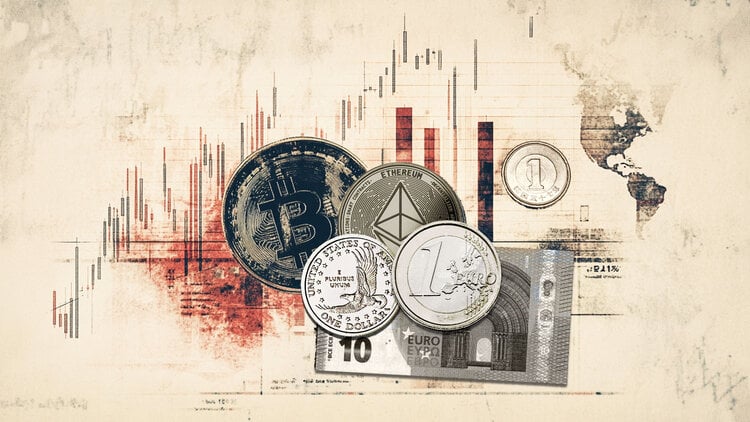The improvement of the business environment continues according to the research “The Pulse of Business” conducted for the fifth consecutive year, the BSE Business Environment Observatory, in collaboration with MRB.
As a general conclusion, the increased appreciation for the continuous improvement of the economic situation of the country and the continuous improvement of critical indicators of the business environment, led by the digitization, is recorded. Overall, companies positively assess their current and future situation, with the highest percentages since 2017 (46% and 42% respectively), while 55% estimate that their turnover will increase and 37% that it will move forward. in employment growth.
However, 72% are concerned about inflationary pressures from price increases on raw materials, energy and transport, which may also lead to price increases. Encouraging a shift to sustainable development, especially among smaller businesses, remains a challenge.
In particular, the key conclusions of research:
The reforms improve the business environment, according to the Difficulty Assessment Indicators in the macro and micro environment (4.9 and 4.8 points respectively, with an optimal of 1). Indicatively, the improvement in the tax rates is mentioned (from 70.6% to 45.5% in the obstacles).
The businesses expect a gradual recovery of the economy, as they positively evaluate their current, but also their future situation, with the highest percentages from 2017 (46% and 42% respectively), while 55% estimate that their turnover will increase in 2022.
53.7% believe that business support measures to deal with the pandemic are effective.
THE teleworking has come to stay, as 50% of companies intend to adopt it in the jobs that suit.
The public digital services show the importance of digital transformation for a more efficient economy and market, as over 58% of companies positively evaluate the top-3 digital public bodies.
The investment plans remain unchanged for 62% of large companies despite the pandemic, highlighting the importance of achieving critical size so that businesses remain resilient and the economy grows.
72% express concern about price increases including the cost of raw materials and energy, for which the absorption potential without increases is finite.
Businesses with more than 10 employees express concern about high energy costs, as they consider it as the main obstacle in their daily operation.
70% of businesses have high expectations of National Recovery and Sustainability Plan and considers that it will contribute positively to the economy
For a small but significant part of the market, mainly smaller companies, there is a need to inform and raise awareness about challenges of green growth, as only 28.7% of small enterprises consider it very or very important (50% in large enterprises).
Entrepreneurship in the age of the pandemic
Six out of 10 companies expect a relatively short duration in the effects of the covid-19 crisis (until the end of 2022), while the general business support measures are also considered effective (53.7%).
The sector-specific measures, however, are deemed ineffective by 54.2% of companies, a percentage similar to 2020. At the same time, teleworking “came to stay” with 50% intending to adopt it, if it fits, in the future and regardless of the pandemic. In terms of the development of business investment planning, the size of the business is a key factor for the “resilience” of the design in the conditions of the pandemic with 62% of the large and 45% of the medium to proceed normally. There are high expectations for dealing with the crisis from the National Recovery Plan with 70% estimating that it will contribute positively.
Businesses for the green transition
For 62% of businesses, green growth issues are listed as important. They create a perspective for reducing operating costs, improving relationships with customers and suppliers, entering new markets and increasing their innovative capacity (30-35%).
46% intend to invest in the future in actions that help reduce energy consumption. On the other hand, the green transition is not significant for 17% (34% in Manufacturing), which highlights the need for information and awareness of the challenges and maturation of adaptation. This is especially true for smaller businesses, as for 50% of the largest green transition issues are considered very important, with the percentage falling to 28.7% in small businesses, which describes the magnitude of the information and encouragement effort that he needs.
Evaluation of the business environment
In 2021, for the 4th year in a row, the course of improvement in the Difficulty Assessment Indicators in the macro and micro environment continued, with performance now above the base.
The digitization of the state remains a “success story” with the best evaluation concerning three digital public bodies, with an even greater improvement compared to 2020 (gov.gr 71%, businessportal GEMI 60% and ERGANI 58%). The rest of the reform areas have a lower level of satisfaction (below 20% in most), but in almost all of them there is an improvement compared to 2020.
At the macro level, the biggest obstacle remains the high taxation (45.5%), recording a significant improvement compared to 2020, which is attributed to the reduction of tax rates and income tax advance.
Corruption / lack of transparency (29.5%), the inefficient functioning of institutions (26.5%) are well followed by a field that includes justice where stagnation is recorded, the macroeconomic situation of the country (23.4%) and the international economic and political environment (22.4%) for which the concern of companies has tripled compared to 2020.
Significant improvement compared to 2020 is the lack of adequate human resources (8th obstacle from 2nd) and the lack of cooperation with universities and research centers for the development of innovation (10th obstacle from 7th), areas where BSE has taken important initiatives .
At the micro level, there is a small, but continuous, improvement in the daily operation of businesses, while for the first time, the inability to access finance / expensive borrowing is ranked in the first place (32.4%). At the same time, the difficulty of high energy costs in relation to 2020 is strengthened (4th obstacle, with 28.6%, +8 am).
For the next day and the recovery of the economy after the pandemic crisis, the smaller companies are asking for support from the State, while the medium and large ones are emphasizing the attraction of new investments (D4). The issues of innovation (26.3%) and the strengthening of young entrepreneurship (12.2%), as well as the issues of the connection of the education system with the labor market (21.9%) and the strengthening research in universities (21%).
Objectives of the research are:
-recording the opinion of companies regarding the evaluation of the business environment, both at macro and micro level, and
– the emergence of proposals for the facilitation of the operation of enterprises and the formulation of policies for the attraction of investments and the economic recovery. Inevitably, special emphasis is placed on the conditions of the pandemic and the challenges for the next day, but also on the challenges of the green transition.
See the full survey in the right-hand column Related Files



.
Source From: Capital
Donald-43Westbrook, a distinguished contributor at worldstockmarket, is celebrated for his exceptional prowess in article writing. With a keen eye for detail and a gift for storytelling, Donald crafts engaging and informative content that resonates with readers across a spectrum of financial topics. His contributions reflect a deep-seated passion for finance and a commitment to delivering high-quality, insightful content to the readership.







